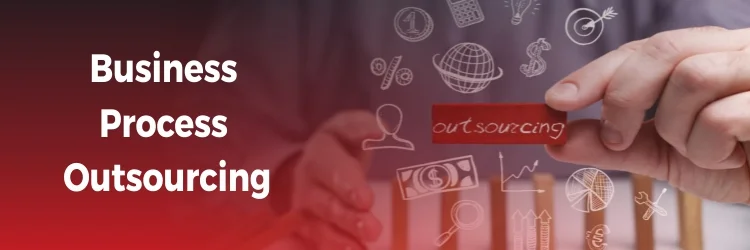Get BPO Right! What do you know about Business Process Outsourcing? More specifically, Business Process Outsourcing? Here's a hint: Using a BPO was limited to some pretty mundane tasks not long ago. Things like call centers for customer service, billing, and payments. The term "outsourcing" dates from the 1980s, but the practice began after WWII ended in 1945. And the range of Business Processes available from an outsourcer was limited.
Today's Business Process Outsourcing is more comprehensive, technical, and pervasive. The range of skills BPO firms offer today is broad and diverse, largely thanks to Digital Outsourcing and the increased use of virtual reality. An estimated $230 billion is spent globally on managing business processes from ordinary customer-service functions, such as call centers, claims, payments, finance, and procurement, to tasks like finance, HR, procurement, and IT. Outsourcing that provides next-generation tech, social media, mobile applications, automation, and analytics, is still a tiny percentage of the total spent on outsourcing. Still, the number is snowballing, having doubled over the last five years.
How Digital Outsourcing Is Expanding Quickly
What do we mean when we use the term "digital outsourcing"? Digital Outsourcing means partnering with a third-party team to run digital services or products. Such as marketing, social media management, or advertising.
While this evolution makes perfect sense, it is a departure from old-school Outsourcing. The reasons? Increasingly tech-savvy BPO companies see a need and move to fill it. And the massive increase in those kinds of functions in businesses across the board.
It's also clear that there must be changes in the business culture for this wave to become a tsunami. It's always been a heavy lift to make inroads for outsourcing, which usually boils down to not wanting to give up control. Even more so than non-digital processes, firms like to hold on to this bright new shiny toy called digital marketing. Most are fully invested in its value and the personnel they've hired to run its operations.
Four Factors For Digital Outsourcing Success
- Morph Operations With Digital. - Outsourcing was very straightforward-payment for a service that could be monetized in cost or time. Perform traditional functions like answering the phone or even entering data into a computer and get paid for the completed task. Performance was also judged by conventional results. Was the job accomplished in an acceptable amount of time? The new paradigm dictates that vendors take on more and more complex processes with a fee based on the digital results.
- Common Incentives To Revolutionize Business. - How does this happen? Alignment with providers' input to change business processes that result in savings in resources. With this in mind, the payment to the outsourcer may include additional fees or a share of the value of those savings. In other words, the outsourcer becomes more of a partner than a vendor.
- Remake The Process. - Since more and more the business process is becoming more intertwined, outsourcing just a segment of it doesn't make sense anymore. One solution is to allow the processor to transform the entire system. This allows upstream and downstream issues to be quickly resolved, further adding to the value.
- Share The Value. - With a system so close-knit, both the client and the outsourcer need to share both the responsibility and the value of these changes. This includes joint supervision and combining R&D efforts in all process phases.
Positive Aspects Of Outsourcing Practices
What is "smart outsourcing"? It's everything we've talked about to this point. It leverages tech to help transform the entire system of outsourcing. It's making partnerships more than a contract or business relationships. It's tapping the whole workforce for input and contribution. It's making technological innovation more efficient for all. Ultimately, it involves a strategic partnership between the business and the outsourcer. This includes things like:
- Flexible Working Hours - One good thing we've retained from the Pandemic is the proven ability of employers to be adaptable to employees' schedules. And workers demonstrated that working flexible hours and from different locations did not reduce productivity.
- Recovering From The Worker Shortage - “The great resignation” was real. And we're still suffering from it. No matter where you lay the cause, it happened, and we’re working on a continuing solution. Outsourcing is a viable component of that solution.
- Contribute To Growth - As strategic partners in a digital world, both sides need to work together toward a growth goal. Outsourcing allows enterprises to almost instantly onboard a skilled, experienced team that’s up to date on the latest best practices in their respective fields.
- Smart Outsourcing - With the help of technologies like laptops, the internet, AI, Robots, and software for task automation, the industry has come far to take control of change and data security in a new way.
Get BPO Right! Now.
So smart outsourcing and the digital process is here, and we're feeling the effects. And it is a new wave of technology applied in new ways to an established sector. One thing is clear: this (r)evolution isn't finished.

Leave A Reply